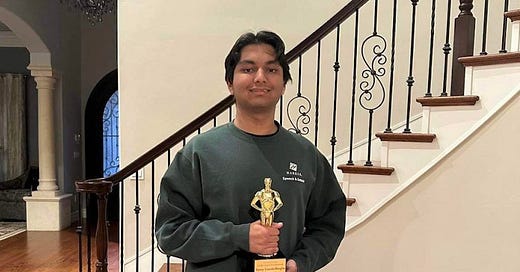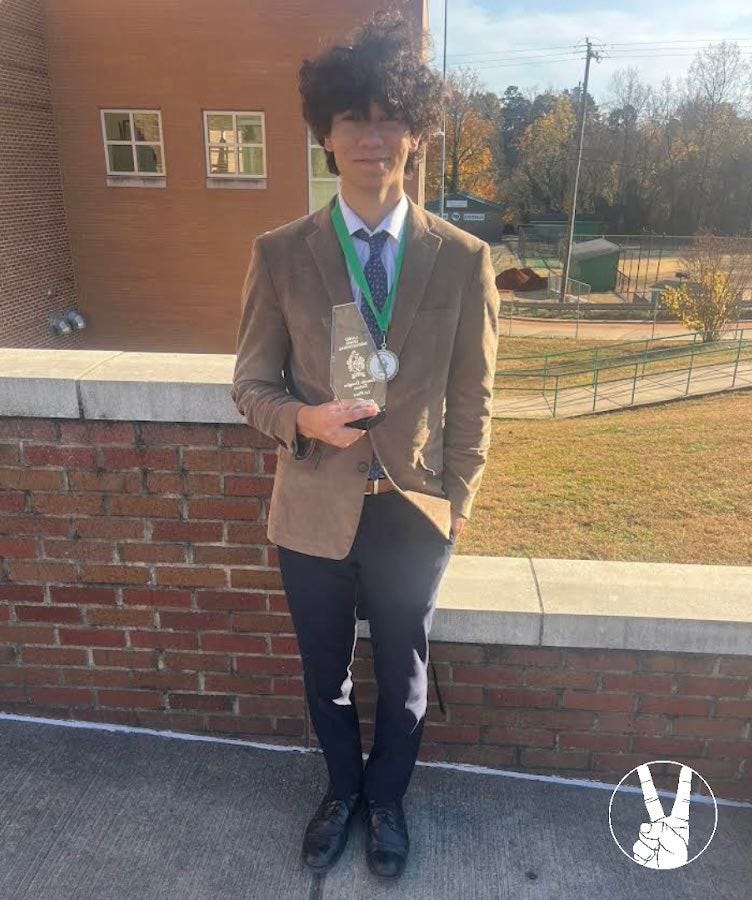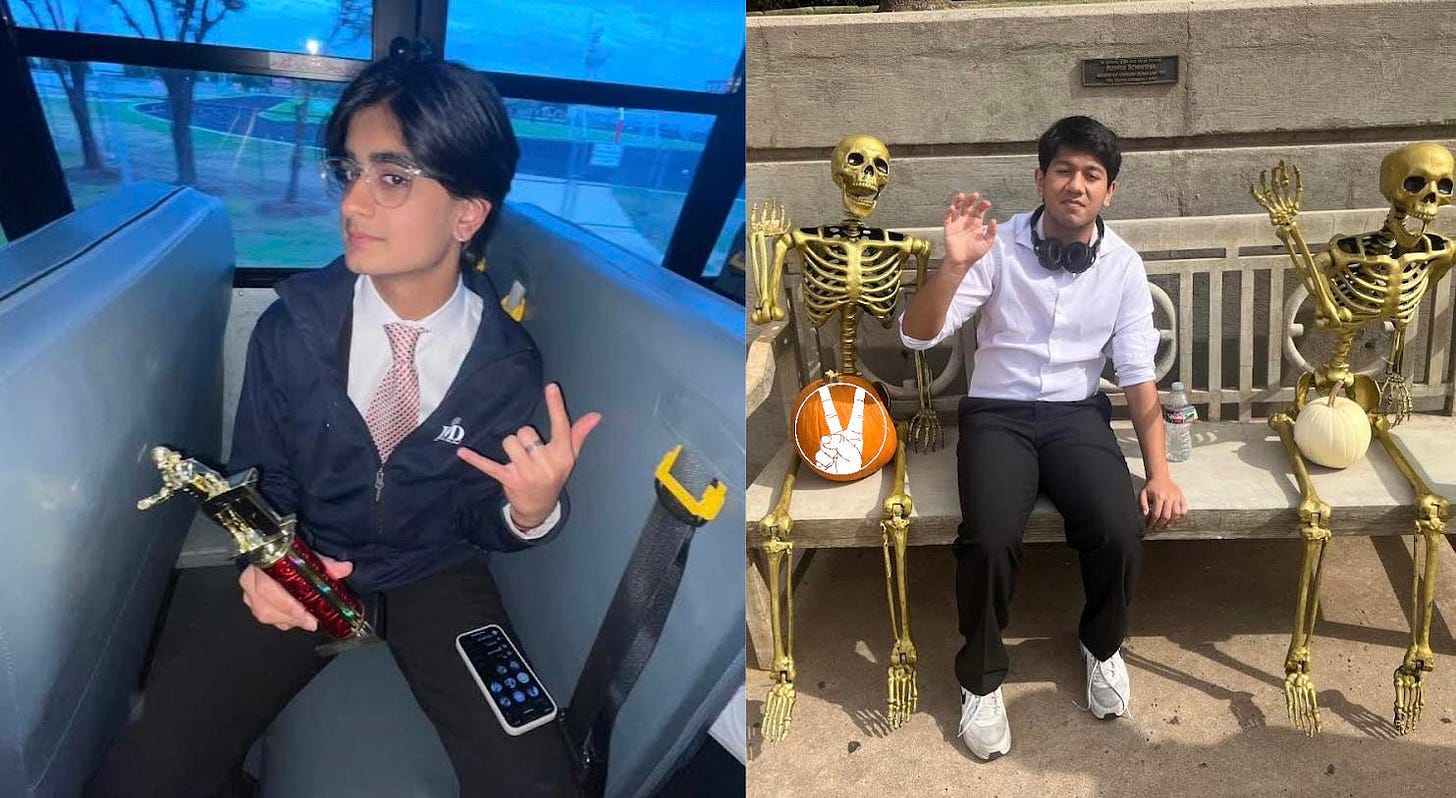11/8-11/15: LD & PF Tournament Results and Affirming the Fossil Fuel Extraction Topic
Lincoln Douglas Debate
Tournament Results
This weekend, LD debaters competed at three bid tournaments: the Damus Hollywood Invitational, the Laird Lewis Invitational, and the Badgerland Chungvitational.
Congratulations to Harker’s Panav Gogte for winning the 2023 Damus Hollywood Invitational. In finals, Panav defeated Peninsula’s Sterling Utovac on a 3-0 decision (Dosch, Dosch, Mimou). Additional congratulations to Harvard Westlake’s William Liu for being the top speaker.
Full pairings and results can be found here.
Congratulations to Christopher Columbus’s Nicholas Diaz for winning the 2023 Laird Lewis Invitational. In finals, Nicholas defeated Charlotte Latin’s Anish Thota on a 3-0 decision (Ahsan, Straley, Stevenson*). Additional congratulations to Christopher Columbus’s Matthew Moreno for being the top speaker.
Full pairings and results can be found here.
Congratulations to Vedh Shetty (independent) and Claudia Taylor Johnson’s Rohail Moti for co-championing the 2023 Badgerland Chungvitational. Additional congratulations to Heights’s Christianna Thomas for being the top speaker.
Full pairings and results can be found here.
Public Forum Debate
Tournament Results
This weekend, PF debaters competed at five bid tournaments: the Ed Long Invitational at Hockaday, the Katy Taylor Fall Classic, the Peach State Classic, the Laird Lewis Invitational, and the Badgerland Chungvitational.
Congratulations to Advaita Ayuluri & Rishya Vemireddy and Aayush Appan & Yang Bai from Jasper for co-championing the 2023 Ed Long Invitational at Hockaday. Additional congratulations to Southlake Carroll’s Dev Sharma for being the top speaker.
Full pairings and results can be found here.

Congratulations to Wenzhuo Zhang & Charlie Yang from Kinkaid and Amey Kashyap & Hannah Kim from Flower Mound for co-championing the 2023 Taylor Fall Classic. Additional congratulations to Seven Lake’s Judijoy Jeter for being the top speaker.
Full pairings and results can be found here.

Congratulations to Frank Yan & Sam Yan from Quarry Lane and Oliver Alferness & Jackson Hayward from Nueva for co-championing the 2023 Peach State Classic. Additional congratulations to St. Luke’s Dash Gilrain-Lennon for being the top speaker.
Full pairings and results can be found here.

Congratulations to Nicholas Willett & Richard Shan from Charlotte Latin for championing the 2023 Laird Lewis Invitational. In finals, they defeated Vishwa Rakasi & Connor Chun from Langley on a 2-1 decision (Jacobs*, Jacobs, Grant). Additional congratulations to Marvin Ridge’s Krish Ramesh for being the top speaker.
Full pairings and results can be found here.
Congratulations to Austin Siefken & Edison Zheng and Devin Lester & Yezul Maharjan from Lakeville North for co-championing the 2023 Badgerland Chungvitational. Additional congratulations to Lakeville North’s Austin Siefken for being the top speaker.
Full pairings and results can be found here.
Best of luck to everyone competing next weekend! Stay tuned for future tournament results.
Affirming the Fossil Fuel Extraction Topic
by Amadea Datel
After judging at the Minneapple and scouring the new arguments broken at the three bid tournaments this past weekend, I decided to compile five thoughts on affirming the topic in hopes that this will be helpful to debaters competing at the remaining Nov/Dec tournaments.
1. Whole res affs >>
I tend to favor larger, core-of-topic affs – arguments supported by the topic literature are not just easier to defend against neg generics but also benefit from representing a significant departure from the status quo (linking my longer explanation here to avoid sounding too much like a broken record).
However, this seems even truer than usual on the Nov/Dec topic, given that the best neg arguments are solvency deficits and advantage counterplans. Even whole res affs struggle to justify that ending fossil fuel extraction on public lands would substantially curtail global emissions given the recent rise of fossil fuel leasing on private lands, continued extraction in other countries, and the substitution effect (while studies and courts have debunked “perfect substitution” – the notion that extraction in other places would compensate for our current emissions attributed to public lands – most sources find that the substitution effect is still around 50%). Therefore, reading an environment advantage while defending an even smaller plan feels counterproductive. Why would halting one oil project in Alaska impact global climate change, given that ending all fossil fuel projects on U.S. federal lands does not?
Moreover, such subset affs don’t succeed in spiking links to DAs since links seem inseparable from aff solvency, even for perception-based DAs. For example, one can assume that the oil companies’ backlash would be proportional to the aff's threat to their profits, which itself indicates that the aff reduces emissions. Thus, debaters should want to give a 2AR on the link turn (fossil fuels and/or climate change worse for growth/renewable fill-in solves), not a no-link argument that concedes the aff doesn’t solve its impacts.
2. T-Prohibit >>
The term “prohibit” gives the neg an extra tool versus subset affs since “prohibit” seems to require a complete or near-complete ban (I have yet to see convincing evidence suggesting otherwise). I had a few conversations with other coaches at the Minneapple about whether debaters also have to win that “federal public lands and waters” is a generic bare plural (that subset affs do not affirm) for the “prohibit” definition to gain relevance. In other words, does the aff winning that subsets affirm independent of the “prohibit” debate render the “prohibit” debate moot?
Although I’ve encountered different opinions, it seems most intuitive that the neg would not have to win an additional interpretation because “prohibit” modifies the entire predicate in the resolution, determining how one interprets “federal public lands and waters.” Therefore, if the aff leaves more than a minimal amount of federal lands and waters open to extraction, it does not constitute a prohibition.
One final T-related thought is that the 1NC should define “prohibit” as meaning “almost all” rather than “all” because the latter eliminates the best response to the PICs standard – that PICs do not negate a general principle. Although this discussion is more relevant for the neg, it is another reason to read whole res affs.
3. Miscellaneous advantage thoughts
The climate advantage seems like the truest on the topic. I've seen a few affs read terminal impacts to climate change as separate advantages (e.g. climate-related tensions cause war), which strikes me as redundant. The best climate impact cards should have built-in war/biodiversity scenarios since rising temperatures alone won't cause extinction – climate change acts as a threat multiplier for all other impacts, which is what makes it so dangerous (and what impact defense cards might not assume due to often evaluating risks in a vacuum).
One aspect of the climate advantage that affs could be further exploiting is that the plan could still solve some of its impacts without winning that renewables would replace fossil fuels. While this situation is unideal (since a world without either renewables or fossil fuels seems catastrophic for non-climate-related reasons), the aff could still have a path to the ballot external to the renewables debate, especially if the 2NR has not extended an econ DA.
I also noticed that most affs included a modeling scenario arguing that the aff revitalizes U.S. climate leadership, spurring other countries to reduce emissions. This argument seems to leave the aff in a conundrum: while the 1AC might need to win some modeling claim to solve global climate change (given that the U.S. makes up a mere 13% of total emissions), the climate leadership argument does not require the aff to prohibit fossil fuel extraction on public lands over other potential climate policies, so the neg could read an advantage counterplan that also motivates other countries to take aggressive climate action and solves most of the aff’s relevant offense.
Finally, I think 1ACs could better set up the 1AR with preempts to “fossil fuels good” arguments (the core of most DAs), such as the argument that fossil fuel extraction is unsustainable.
4. Intrinsicness tests >>
The number of non-intrinsic DAs or impact turns I judged (apart from the usual process CPs) left me thinking the 1AR was failing to capitalize on the opportunities to “counterplan” out of such arguments.
For those unfamiliar with intrinsicness tests, I’d recommend reading this longer defense, but the TL;DR is that arguments that are not intrinsic to the action of the plan are irrelevant in evaluating whether it is a good idea e.g. if I were to propose “I should go to the store on Saturday” and a friend responded that going to the store would require me to miss a meeting on Saturday, I could argue that that doesn’t constitute a reason not to go to the store but to reschedule the meeting (since missing the meeting is not a necessary outcome of going to the store). This logic justifies counterplans (since those test whether the plan is necessary and sufficient to solve the aff’s advantages), and we should not suspend logical principles of argumentation when evaluating disadvantages as opposed to advantages.
I noticed this topic was replete with non-intrinsic DAs – the aff could advocate to ban renewables in response to the renewables impact turn (granted, at a cost to themselves), ban nuclear energy development versus the nuclear energy shift DA, ban fossil fuel imports against the energy security DA, or ban fossil fuel leasing on private lands to resolve solvency deficits about shifting production since none of those are relevant objections to the topic if a world exists where we can both pass the plan and avoid them.
5. 1ARs need more offense
I judged several 1ARs that were solid on a technical level (splitting their time evenly between flows and making a diverse set of responses against each off-case position) but still found themselves in a rough spot following an effective 2NR collapse. To offset this time skew, 1ARs should be straight-turning DAs, a more than reasonable option on various topic DAs. For example, the elections DA seems to go aff (Biden has not fulfilled his promises to end fossil fuel leasing on public lands, adding to a long string of broken promises on climate that have de-energized his base), the aff has viable link turns to the econ DA (fossil fuels unsustainable/renewables solve), and the nuclear energy shift DA hands the aff a simple mechanism to solve climate change.
I hope this article was helpful! Feel free to reach out if you have any questions or comments.
Amadea Datel is a senior at Dartmouth College who debated college policy at both Columbia and Dartmouth. She reached the quarterfinals at the Gonzaga Jesuit Debates and won the University of Minnesota College Invitational, the Crowe Warken Debates at USNA, and the Mid America Championship, ranking as the 25th team nationally her sophomore year. In high school, she built and coached her school’s LD debate team, won several tournaments in Massachusetts, and was the top speaker and a semifinalist at the MSDL State Championship and the first student from her school to qualify for NSDA and NCFL Nationals, clearing at the former. She is currently the Co-Director of LD and Newsletter Editor at the Victory Briefs Institute and an Assistant Coach at Apple Valley High School.









